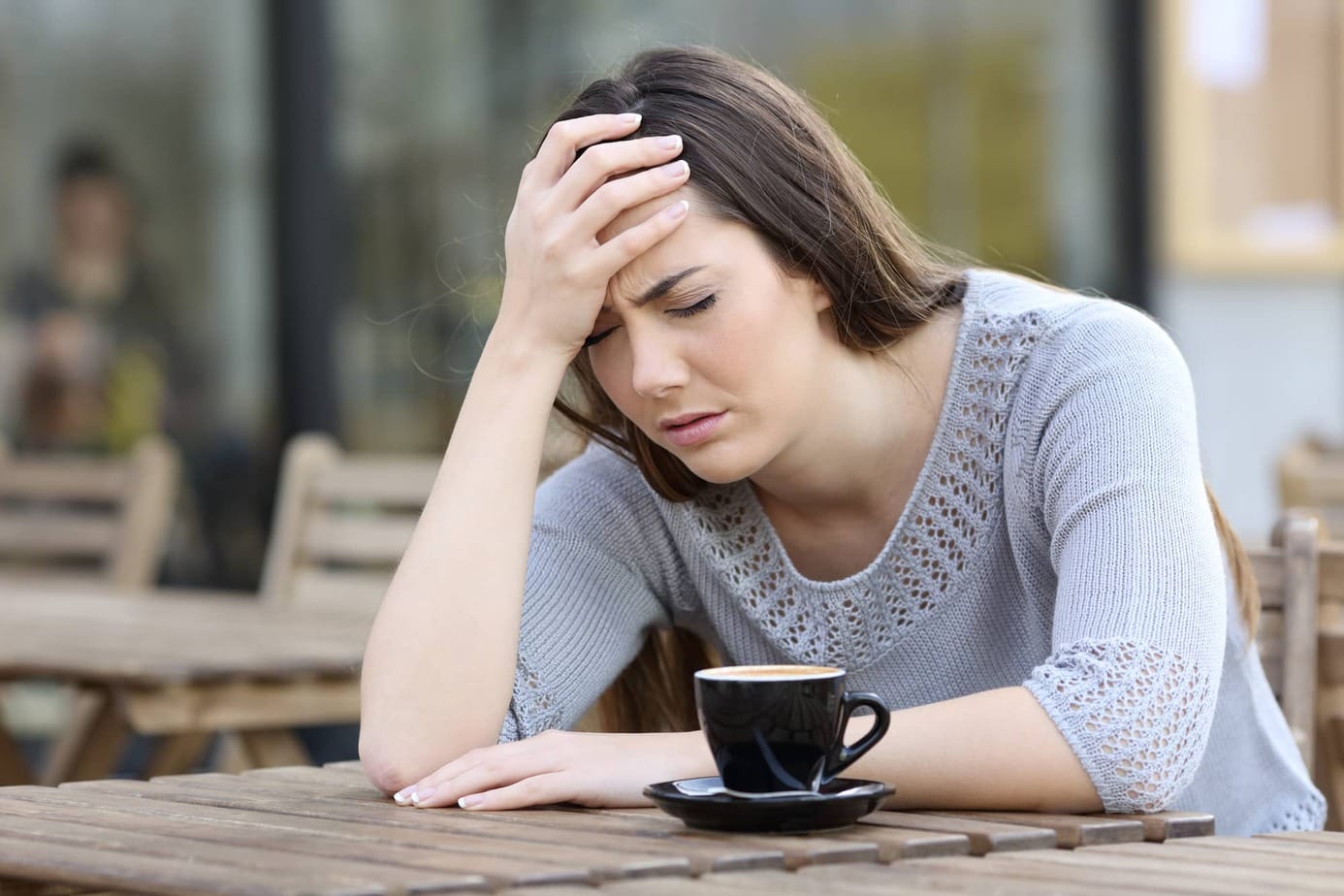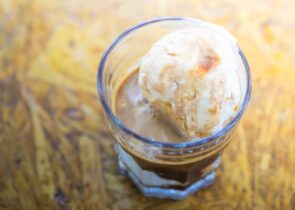If you’re anything like me, you can’t wait to grab a cup of coffee as soon as you wake up. And, if you’re like me, you might find yourself asking why the room is spinning after just a few sips of the stuff.
A few factors could be causing my coffee-related dizziness and lightheadedness, and they might be behind yours, too. Read on to find out why our cups of coffee are making us dizzy and what we can do about it.

Key Takeaways
- Drinking coffee on an empty stomach can cause dizziness, thanks to increased stomach acid and reduced blood flow to the brain.
- To prevent dizziness and other unpleasant symptoms after drinking Joe, stay hydrated and have your coffee with food. Both water and a good meal can help stabilize the body.
- Monitoring your daily amounts of coffee and being aware of your caffeine tolerance can help you enjoy the beverage with minimal to no adverse effects.
Why Do I Get Dizzy When I Drink Coffee?
The short answer is that it’s coffee’s caffeine content that’s causing you dizziness. It’s most likely behind any other unpleasant side effects you’re experiencing, too.
Coffee has caffeine, and caffeine is a drug — a stimulant at that. Like most stimulants, caffeine reduces blood flow to the brain, and unless you’re taking precautionary actions, that’ll make you feel lightheaded, jittery, or woozy.
When coffee makes me dizzy, I retrace my steps with the following questions. This usually helps me figure out what went wrong and prevent dizziness in the future.
Have I Eaten?
Don’t skip breakfast! It’s not a good idea, but far too many of us do it. The average American coffee drinker downs three cups a day, and most do it on an empty stomach within their first hour awake.
Food can help dilute caffeine enough that you don’t notice its stimulatory effects. Even something as small as a toasted bagel or piece of toast can do a lot of good, so eat something!
Am I Drinking Too Much Coffee per Day?
Mayo Clinic advises against ingesting large quantities of coffee and says that 400 milligrams (that’s roughly four cups a day) is the suggested limit for adults. Having more than this can cause a ton of unwanted side effects, including dizziness.
Coffee isn’t just a stimulant. It’s an adenosine receptor antagonist that tricks the brain into being more alert. Over time, caffeine intake can create drowsy feelings as your body produces more adenosine in response.
As you build up a resistance to the inhibitor, it might be tempting to consume more coffee drinks to feel more alert — I know that’s my first response! But that’s not the best idea, as the more caffeine you drink, the higher your chances of experiencing insomnia, nervousness, irritability, high blood pressure, and the dreaded dizziness.
Am I Drinking Plenty of Water?
Coffee is a diuretic that causes water and electrolyte loss. So, when a cup of it leaves me feeling dizzy, I might grab a glass of water and chug. Drinking water keeps me from getting dehydrated and eventually sends the dizziness away.
Can Decaf Coffee Make You Dizzy?
Unfortunately, decaffeinated coffee can leave you feeling dizzy, too.
Decaf Joe isn’t always fully free of caffeine. While it contains significantly less of the stimulant than regular coffee does, decaf Joe still contains trace amounts of caffeine. So, if you’re drinking decaf but still going over the daily recommended caffeine doses through other substances — energy drinks, for instance — you’ll probably still get dizzy.
You might also get dizzy if you’re used to drinking regular coffee and start drinking decaf. Dizziness and lightheadedness are common effects of caffeine withdrawal. You can avoid this by cutting down on your caffeine intake gradually instead of abruptly.
Check Your Caffeine Tolerance
Some people can drink buckets of coffee and not be affected by caffeine symptoms, while someone else might immediately feel the stimulant’s unwanted effects after having half a cup. Before you pull out your favorite bag of coffee beans and start brewing, ask yourself what you can handle.
Once you gauge your caffeine sensitivity, try not to overdo it. Keeping a careful watch on your caffeine intake can help you enjoy the occasional cup without being thrown off balance — literally and figuratively.
After I began paying attention to how caffeine affects me, how much of it I can handle, and remembering to eat food and drink water, I didn’t have to ask why coffee made me dizzy anymore. Looking at my habits helped me self-correct.
As they say, knowledge is power, and this knowledge helps me keep on enjoying my morning cup!
Happy Caffeinating!







